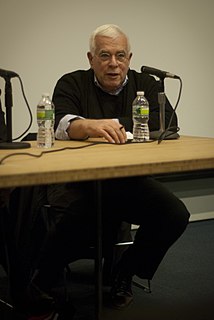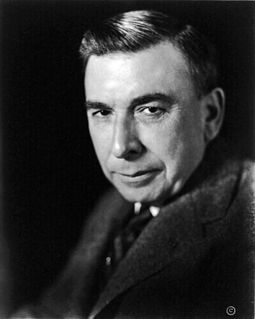A Quote by Thomas Jefferson
What but education has advanced us beyond the condition of our indigenous neighbors? And what chains them to their present state of barbarism and wretchedness but a bigoted veneration for the supposed superlative wisdom of their fathers and the preposterous idea that they are to look backward for better things and not forward, longing, as it should seem, to return to the days of eating acorns and roots rather than indulge in the degeneracies of civilization?
Quote Topics
Related Quotes
Friedrich Engels once said: "Bourgeois society stands at the crossroads, either transition to socialism or regression into barbarism." What does "regression into barbarism" mean to our lofty European civilization? Until now, we have all probably read and repeated these words thoughtlessly, without suspecting their fearsome seriousness. A look around us at this moment shows what the regression of bourgeois society into barbarism means. This world war is a regression into barbarism. The triumph of imperialism leads to the annihilation of civilization.
Physically, we get older and then we die. Yet spiritually, whether we go backward or forward is a matter not of the body but of consciousness. When we think about age differently, then our experience of it changes. We can be physically older but emotionally and psychologically younger. Some of us were in a state of decay in our 20s and are in a state of re-birth in our 60s or 70s. King Solomon, who supposedly was the wisest of all men, described his youth as his winter and his advanced years as his summer. We can be older than we used to be yet feel much younger than we are.
When we build ... let it not be for present delights nor for present use alone. Let it be such work as our descendants will thank us for, and let us think ... that a time is to come when these stones will be held sacred because our hands have touched them, and that men will say as they look upon the labor, and the wrought substance of them, See! This our fathers did for us!
I'm not so sure he's wrong about automobiles," he said, "With all their speed forward they may be a step backward for civilization-that is, spiritual civilization ... But automobiles have come, and they bring a greater change in our life than most of us expect. They are here, and almost all outward things are going to be different because of what they bring. They are going to alter war, and they are going to alter peace.
It is not a charity but a right, not bounty but justice, that I am pleading for. The present state of civilization is as odious as it is unjust. It is absolutely the opposite of what it should be, and it is necessary that a revolution should be made in it. The contrast of affluence and wretchedness continually meeting and offending the eye, is like dead and living bodies chained together
We've bought into the idea that education is about training and "success," defined monetarily, rather than learning to think critically and challenge. We should not forget that the true purpose of education is to make minds, not careers. A culture that does not grasp the vital interplay between morality and power, which mistakes management techniques for wisdom, which fails to understand that the measure of a civilization is its compassion, not its speed or ability to consume, condemns itself to death.
On the other hand, whatever condition we are in, we must always do what we want to do ,and if we want to go on a journey, then we must do so and not worry about our condition, even if it's the worst possible condition, because, if it is, we're finished anyway, whether we go on the journey or not, and it's better to die having made the journey we've been longing for than to be stifled by our longing.
Wisdom is a condition of consciousness rather than an attitude of mind. Wisdom is that state of being in which an individual finds himself when realization has tinctured and transmuted all attitudes and opinions. A wise man is one who has experienced wisdom, wisdom in this sense being a mystical experience.
The Americans say that we are ungrateful-but I ask them for heaven's sake, what should we be grateful to them for-for murdering our fathers and mothers?-Or do they wish us to return thanks to them for chaining and handcuffing us, branding us, cramming fire down our throats, or for keeping us in slavery, and beating us nearly or quite to death to make us work in ignorance and miseries, to support them and their families. They certainly think we are a gang of fools.


































